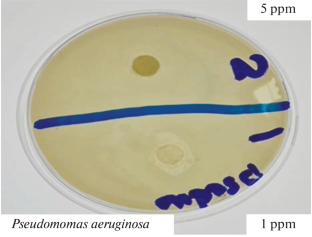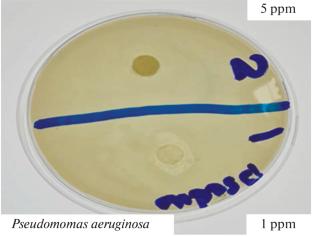评估作为反渗透水管道缓蚀剂的月桂叶黄酮提取物及其对肝脏酶和血液学参数的影响
摘要
摘要本研究从月桂叶中提取黄酮类化合物,并对25°C条件下不同浓度(1、2、3、4和5 ppm)的反渗透(RO)水管道进行缓蚀试验%) at 1 ppm. The effect of temperature on the inhibition efficiency for the optimal concentration of the flavonoid extract of 1 ppm was studied at 35, 45, and 55°C. The results revealed that the efficiency was reduced as temperature increased. Furthermore, the kinetic parameters like activation energy \(E_{{\text{a}}}^{*}\), enthalpy of activation ΔH*, entropy of activation ΔS*, and Gibb’s free energy of activation ΔG* were calculated. Thus, the flavonoids extract of Laurus nobilis can be used as green inhibitor for corrosion because it does not contain toxic compounds. In addition, the effect of the flavonoids extract dissolved in the RO water on the liver enzymes and hematological parameters were studied after oral administration by male rabbits for 28 days. The results indicated no significant difference in the serum level of Alanine and Aspartate aminotransferase and alkaline phosphate, while the hemoglobin concentration and the red blood cells number increased after treatment with the flavonoids extract. Besides, application of the flavonoid extract revealed inhibition in the growth of Pseudomonas aeruginosa and Bacillus subtilis bacteria at 1 ppm concentration.


In this study, flavonoids were extracted from Laurus nobilis leaves, and the extract was evaluated as corrosion inhibitor for pipelines of reverse osmosis (RO) water at 25°C for different concentrations:1, 2, 3, 4, and 5 ppm, The extract demonstrated a high inhibition efficiency (96.3%) at 1 ppm. The effect of temperature on the inhibition efficiency for the optimal concentration of the flavonoid extract of 1 ppm was studied at 35, 45, and 55°C. The results revealed that the efficiency was reduced as temperature increased. Furthermore, the kinetic parameters like activation energy \(E_{{\text{a}}}^{*}\), enthalpy of activation ΔH*, entropy of activation ΔS*, and Gibb’s free energy of activation ΔG* were calculated. Thus, the flavonoids extract of Laurus nobilis can be used as green inhibitor for corrosion because it does not contain toxic compounds. In addition, the effect of the flavonoids extract dissolved in the RO water on the liver enzymes and hematological parameters were studied after oral administration by male rabbits for 28 days. The results indicated no significant difference in the serum level of Alanine and Aspartate aminotransferase and alkaline phosphate, while the hemoglobin concentration and the red blood cells number increased after treatment with the flavonoids extract. Besides, application of the flavonoid extract revealed inhibition in the growth of Pseudomonas aeruginosa and Bacillus subtilis bacteria at 1 ppm concentration.

 求助内容:
求助内容: 应助结果提醒方式:
应助结果提醒方式:


